Everything Is Essential
In which Norm explores the depths of Criterion's magnificent new Chantal Akerman collection.
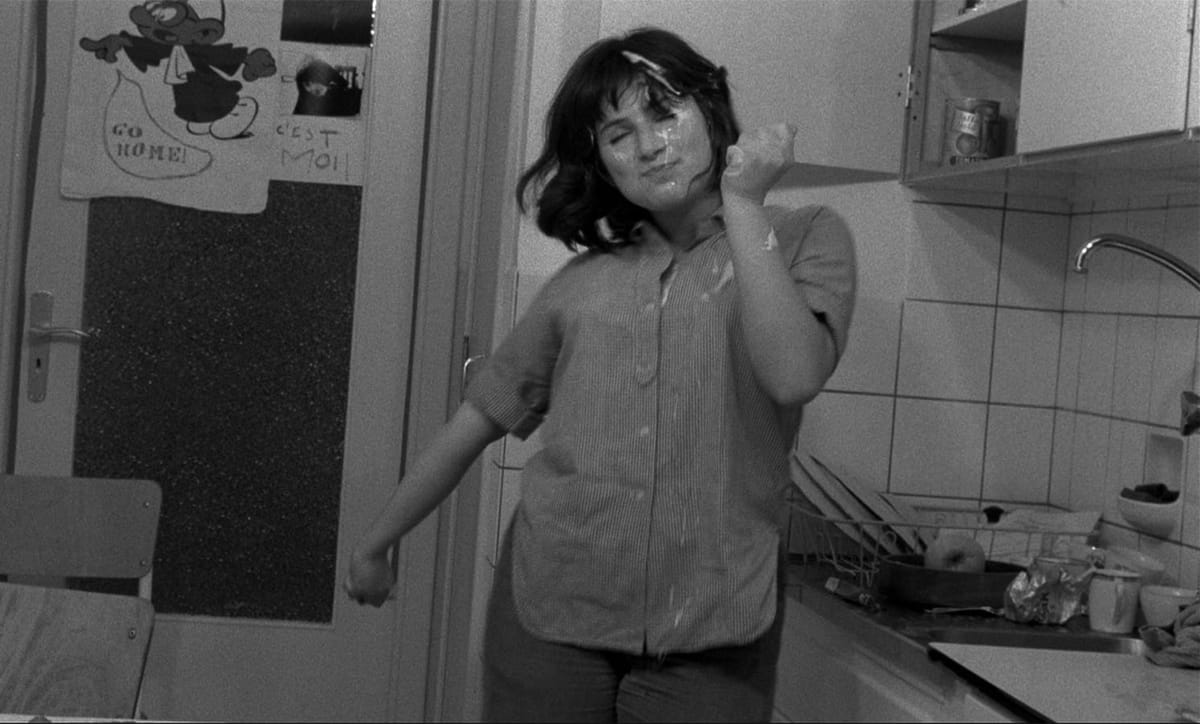
Apologies for skipping an edition last week. Kate and I have been dealing with a series of family emergencies, and it turns out it’s hard to write in hospital rooms. Those of you on the paid tier still got my piece on Via Vision’s Sidney Lumet collection, and I hoped you enjoyed it. And more to the point, the set’s still on sale!
(At a more basic housekeeping level, the stuff we’re dealing with is still taking up a lot of our time, so publishing might be sparse over the next couple of weeks.
Anyway, that edition would have been about Criterion’s excellent new Chantal Akerman box, the achingly comprehensive Chantal Akerman Masterpieces, 1968-1978, and it’s taken me a little longer than I’d hoped to get through it. Maybe it’s got something to do with the theme of mothers and daughters that runs through Akerman’s films. Maybe it’s got something to do with knowing Akerman fell into a terminal depression after her own mother died. Maybe it’s just that Akerman’s cinema is so deeply felt, so beautifully constructed, so powerfully present that it needs to be consumed with care.
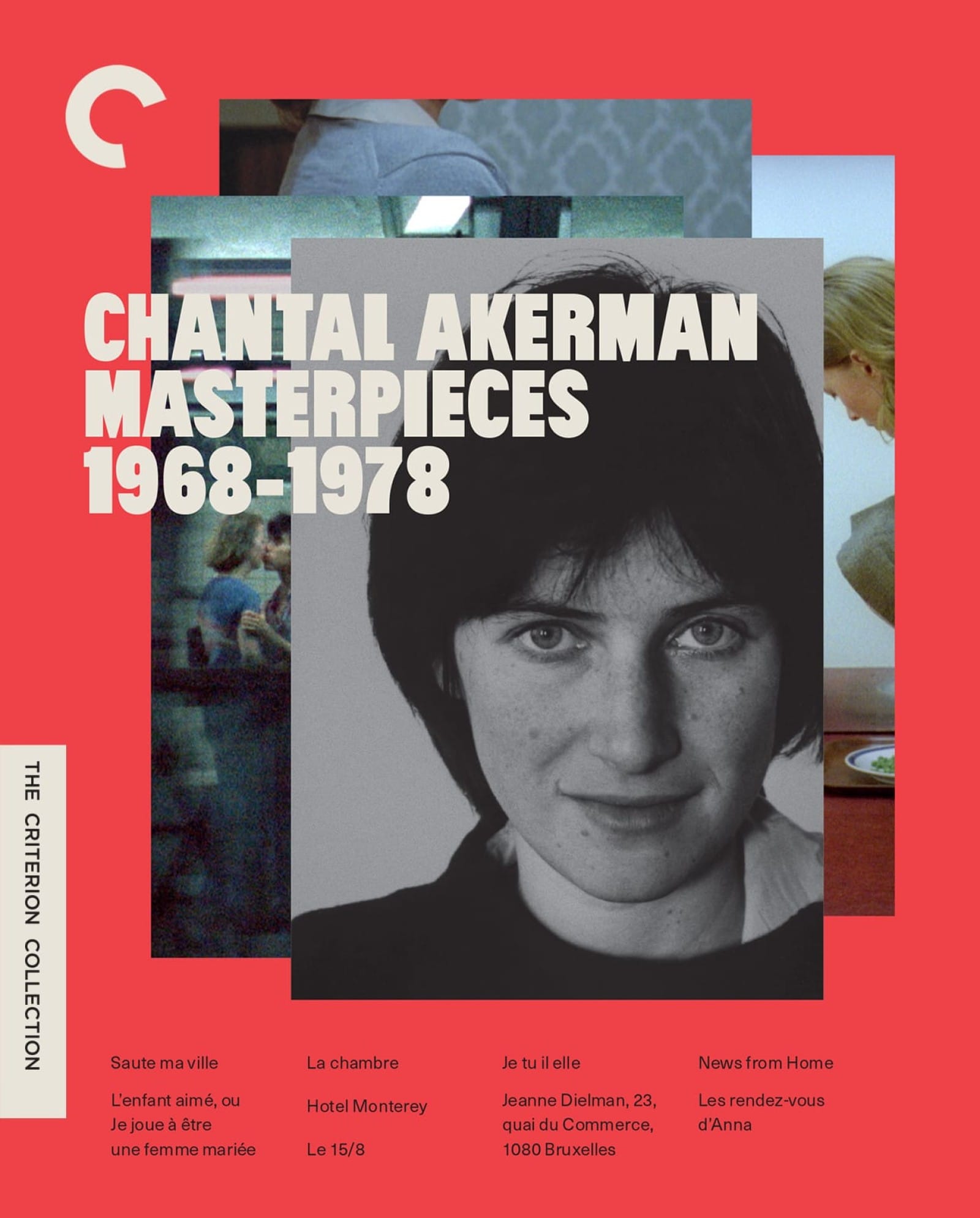
I don’t mean to imply that Akerman’s films are somehow harmful; quite the contrary. They’re exquisite, and while you certainly can gorge on them if you choose, I think they work best with a little distance from one another, so they can steep and expand in your mind. There’s a reason Jeanne Dielman took a while to be declared the best film ever made. Well, there are probably several reasons. But you see what I mean.
Jeanne Dielman, 23 Quai du Commerce, 1080 Bruxelles is literally at the center of Criterion’s three-disc set. Akerman’s second feature takes up the whole of Disc 2, accompanied by most but not all of the special features produced for its stand-alone Blu-ray release. Don’t worry, the missing extras have been moved to the other platters – starting with the 1968 short film Saute Ma Ville, which is now the first title on Disc 1.
Disc 1 also offers L’Enfant Aimé (ou Je Joue à Être une Femme Mariée) and La Chambre and Le 15/8, short projects made in 1971, 1972 and 1973, respectively, along with Akerman’s first documentary, 1972’s hour-long Hotel Monterey, and her first dramatic feature, 1975’s Je Tu Il Elle. Disc 3 gives us the 1976 documentary News from Home and her third feature, 1978’s Les Rendez-vous d’Anna.
Akerman’s films always leave me feeling utterly inadequate, as if I can’t do justice to them with words. Listen to Deragh Campbell’s eloquent, connected exploration of Aurore Clément’s emotional states in Les Rendez-vous d’Anna – and Akerman’s exacting methodology in capturing them – in this 2019 episode of Someone Else’s Movie; that’s the level of analysis to which I aspire. I’m in awe of Deragh generally, of course, but it was such a joy to have that conversation with her about this film.

Watching these collected works – several of which previously appeared in one of Criterion’s no-frills Eclipse DVD collections, Chantal Akerman in the Seventies, back in 2010 – what becomes clear is that Akerman understood alienation better than any other filmmaker, and maybe any other artist. In her excellent notes, the critic Beatrice Loayza describes News from Home as “one of her most elegantly minimalist and profoundly affecting meditations on dislocation and estrangement”, and that is exactly so.
Akerman’s cinema is drenched in loneliness, her documentary subjects and fictional characters existing in solitary confinement even as they move through the world. The silence is constant, and deafening. The connections they make are brief, dispassionate and unfulfilling, except for the ones they forge with the viewer … and of course that relationship is one of which they’re unaware, orchestrated outside the frame. Even the people she captures in Hotel Monterey – half-smiles frozen on their faces as they pose for her moving camera – are isolated this way.
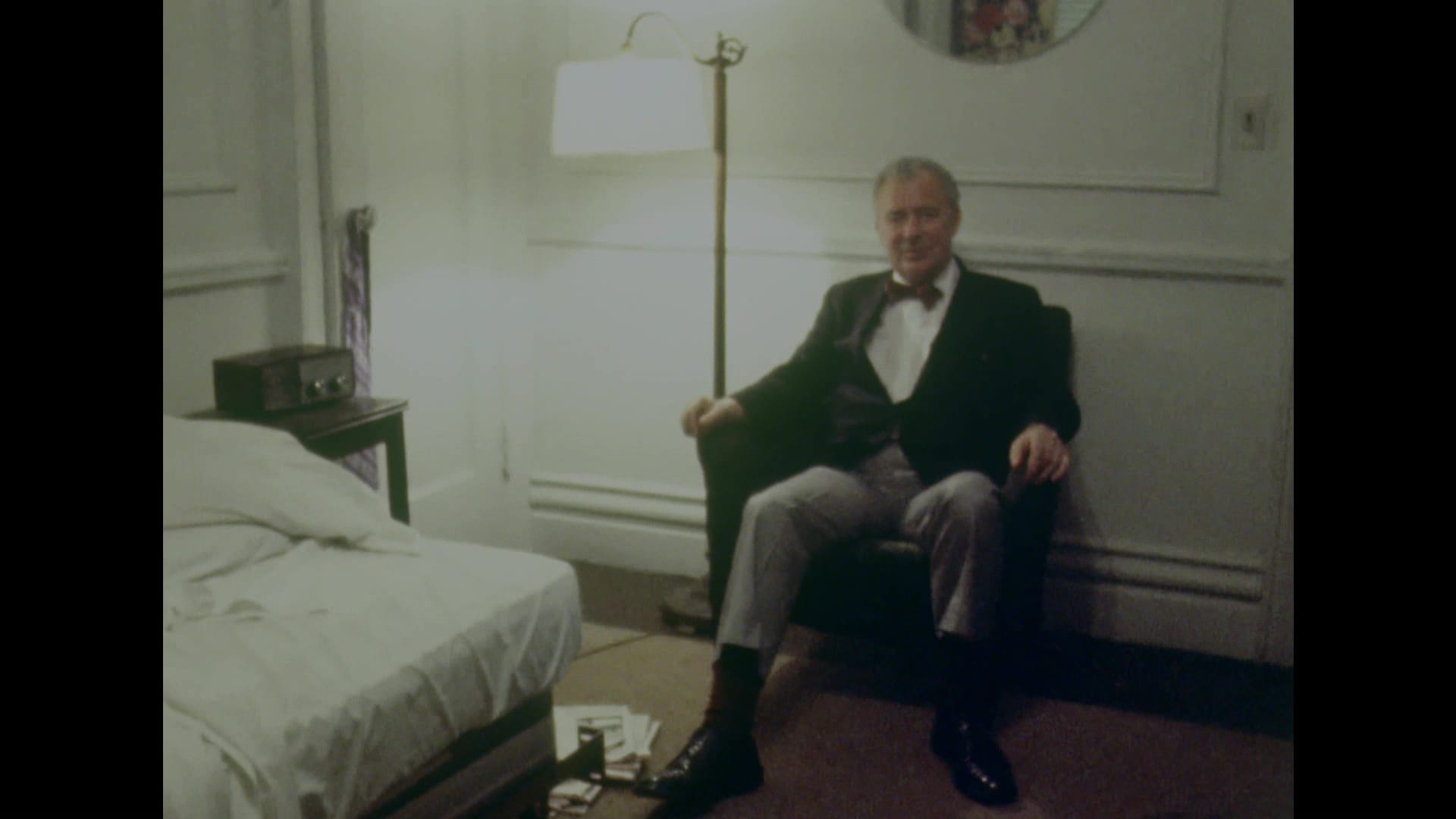
I think about how the flat gaze of Delphine Seyrig in Jeanne Dielman echoes what Akerman herself does in La Chambre, staring blankly at the camera as if to ask us what we want from her. Is Jeanne wondering what she wants from herself? Does she find it by breaking her stasis, or simply constructing a different sort of imprisonment? In an introduction to Saute Ma Ville recorded for the original Criterion DVD release, Akerman describes that short as the “mirror image” of Jeanne Dielman; it too has a moment where the protagonist glances at the camera, but her eyes are dancing. Maybe manic.

Do all roads lead back to Jeanne Dielman, or does it simply occupy such a massive space in Akerman’s legacy that everything else seems to orbit around it? Is the discontented young mother in L’Enfant Amié – a fictional creation performed by Claire Wauthion, who spends the midsection of the half-hour short discussing her romantic disillusionment and post-partum depression with a friend played by Akerman herself – a sketch for Seyrig’s older, less lively character? (Or are they the same women Akerman and Wauthion will play four years later in her landmark Je Tu Il Elle, seen here in very different circumstances?)
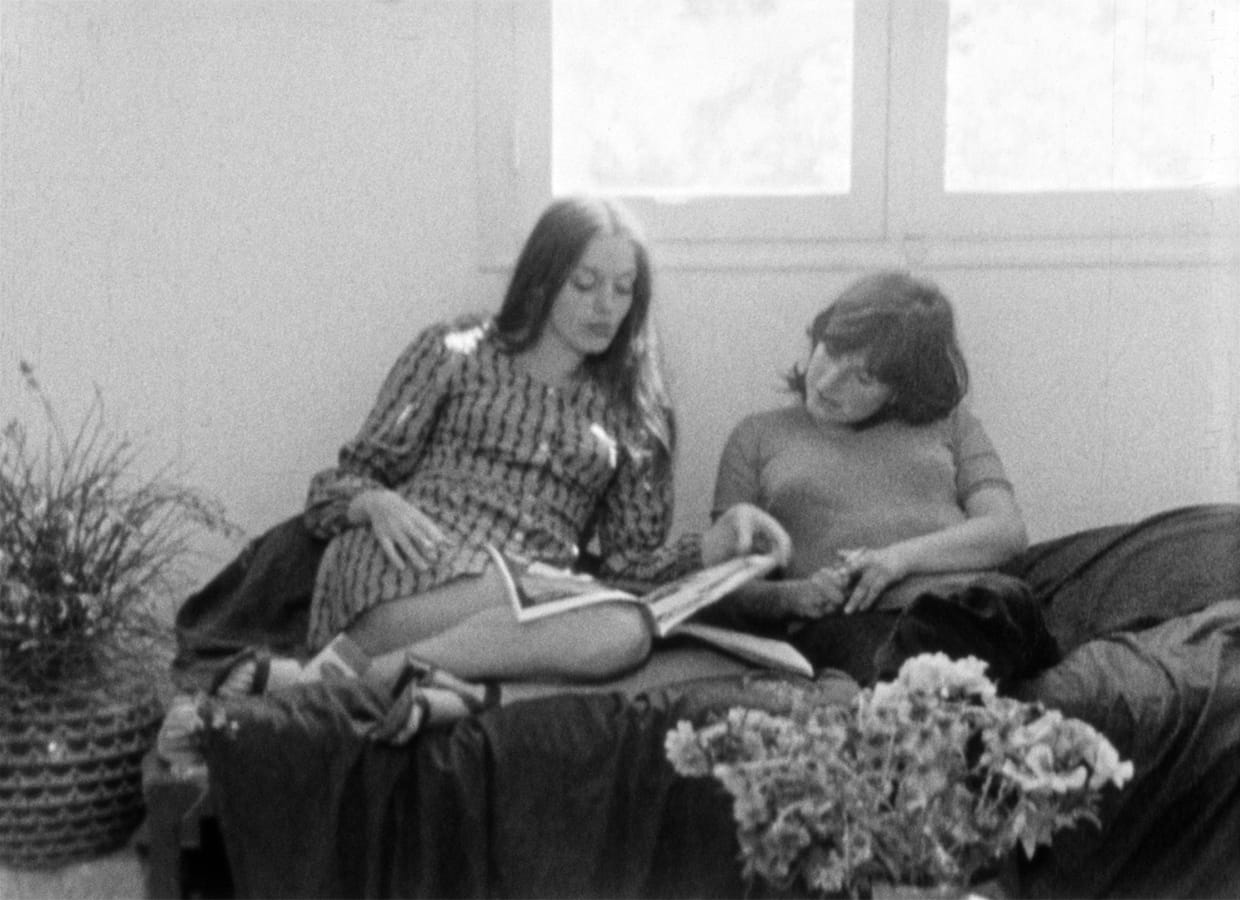
I doubt everything in Akerman’s filmography is that connected, but her films are rich enough, alive enough, that it’s possible. Even the menu screen created for these discs – a montage of Akerman’s women, several of whom she plays herself, isolated in their respective worlds – suggests an unspoken sympathy that binds them all, or at least a sense that they’re all resonating at a frequency only the camera can register.
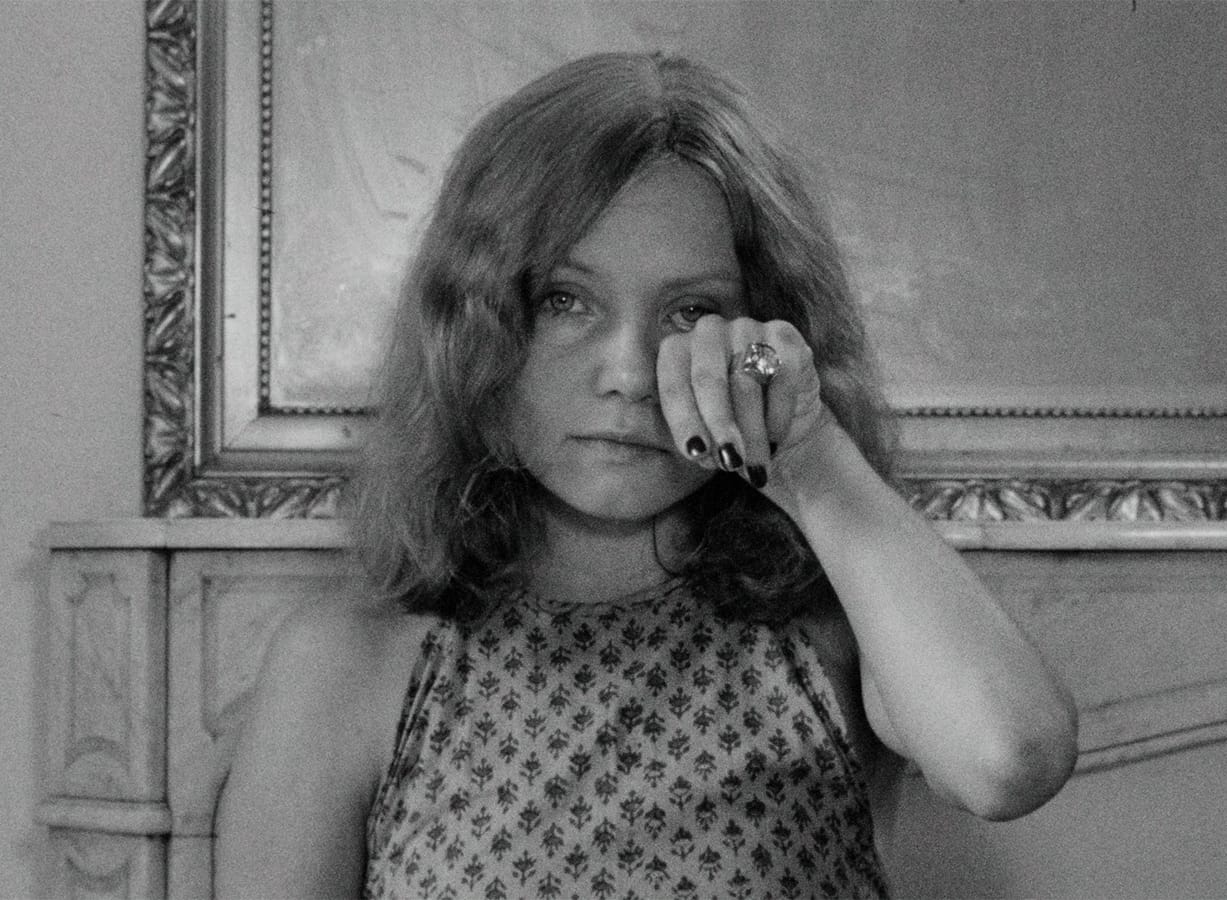
The other thing about Akerman is that all of her work is ultimately experimental. Even something as ostensibly straightforward as Le 15/8 hides layers of mystery: Akerman and her frequent collaborator Samy Szlingerbaum – sharing directorial credit here – roll bucolic black-and-white footage of their interview subject, Chris Myllykoski, on a beautiful summer day while in voiceover she confesses a sense of isolation as a Finnish expat in France.
And of course Le 15/8 gets its own mirror image in News from Home, with its gorgeous footage of mid ’70s New York City locations undercut by Akerman reading her mother Natalia’s letters from back in Belgium, all written with the same cheerful tone but revealing an undercurrent of anxiety and concern. “We hope everything works out just the way you want,” the first one concludes, and while it’s not meant ironically it feels like a summation of all of Akerman’s cinema.

Mastered from 2K digital restorations by Cinematek, the Royal Film Archive of Belgium (with the exception of Les Rendez-vous d’Anna, restored in 4K), the Blu-ray discs let us come at Akerman’s work with fresh eyes. The 16mm film grain is a constant, reassuring element here, rather than the noise that threatened to obscure the image in the unrestored DVD transfers, while the 35mm features are richer, the distinctive color schemes of the era that much more vivid.
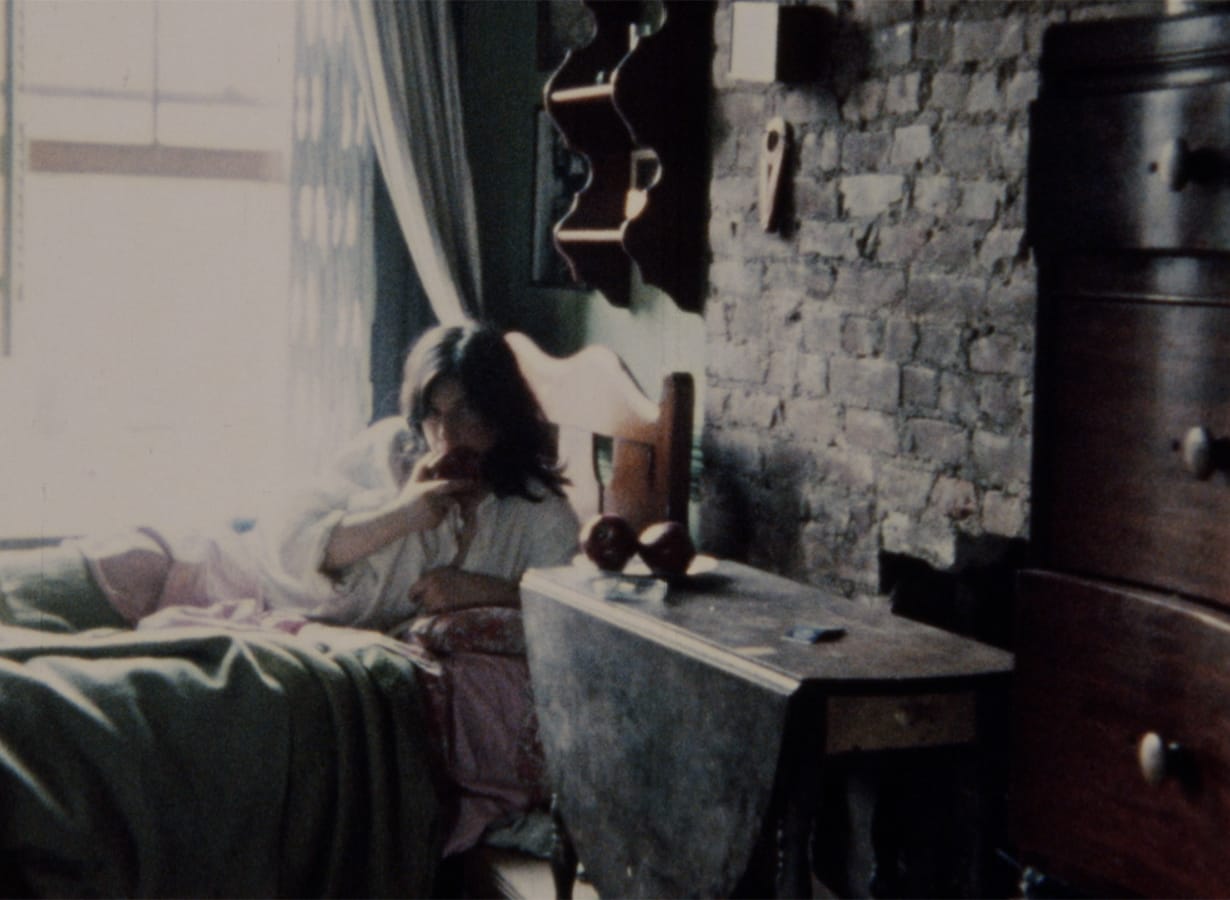
The measured movement of the camera in La Chambre has an eerie tactility, its repeated pans around a New York bedroom revealing subtle and not-so-subtle differences in its carefully staged space and the woman who rests there. (Another loop? Another trap?) And Les Rendez-vous d’Anna has a subtle theatricality now, its colors and contrasts rendered with an intensity that makes real locations feel like sets or soundstages.
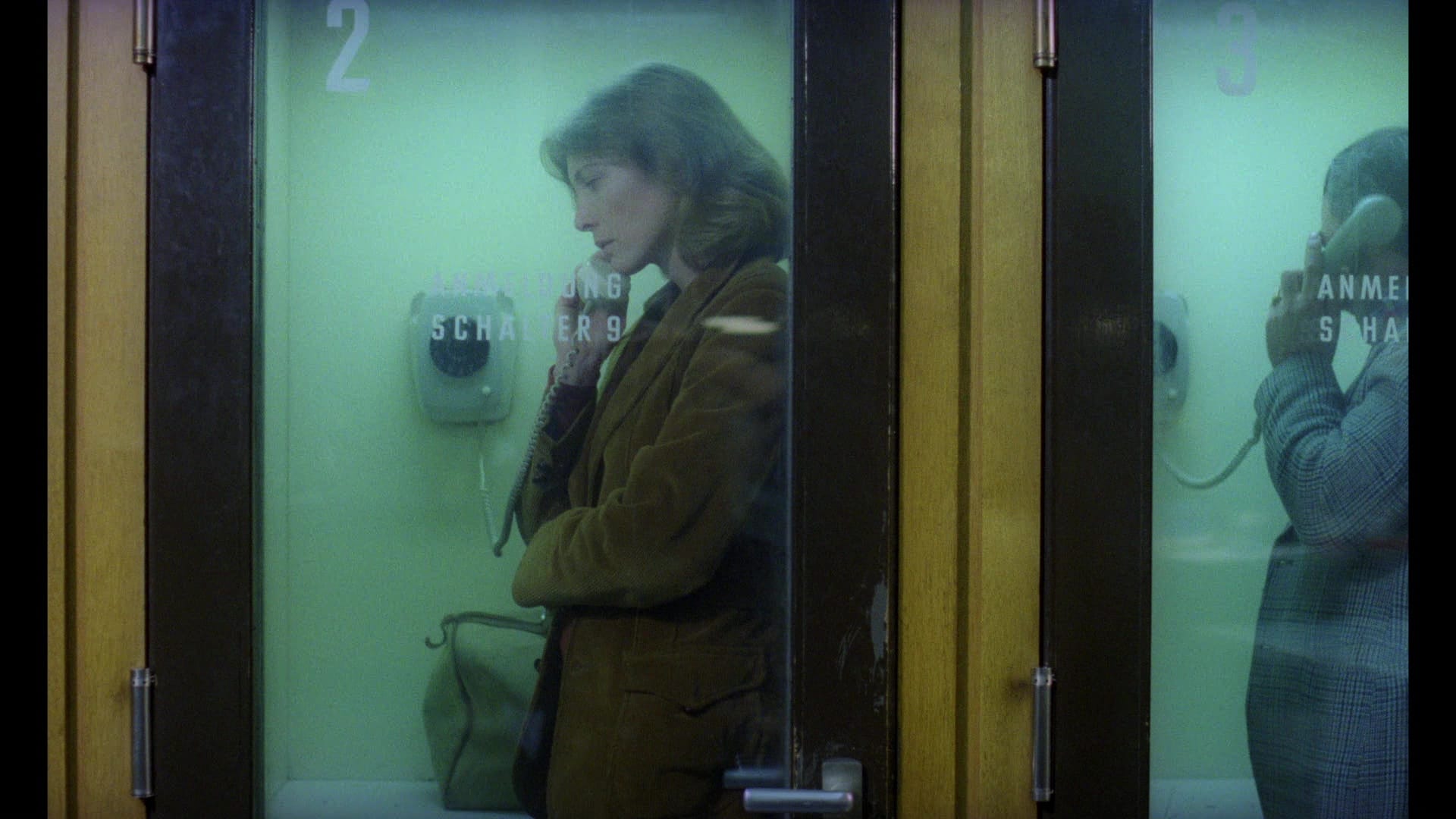
Criterion’s special features are assembled with a similar care, the better to illuminate both the content and the artist. In “A New Way of Seeing”, a new featurette on Disc 1, B. Ruby Rich guides us through Akerman’s first decade as a filmmaker, noting the development of visual motifs over her features, the evolution of her focus on ritual (“She’s not someone who wants to make grand epics … she’s very interested in the chronicle of daily life”), and the synthesis of Akerman’s aesthetic with her friend and longtime cinematographer Babette Mangolte’s.
The disc also includes four short camera tests – all restored by Cinematek – that Akerman shot for her submission package to film school in Belgium, and the “most complete version” of Hanging Out Yonkers, an unfinished documentary about teenagers in a juvenile rehabilitation center in New York. Akerman and Mangolte shot the footage in 1973, but when the sound rushes were lost the film was abandoned; the half hour of 16mm footage we see here gives little indication of where the project might have ultimately have looked like, but its grainy compositions and patient camera – as well as the lack of a soundtrack, however unintentional – make it feel like a sister project to Hotel Monterey.
Produced and edited by Valeria Rotella, Disc 3’s “In Her Own Words” is a visual essay of the films in the boxed set, with clips and photos accompanied by an audio commentary created from interviews recorded in 1975 and 1977 – and introduced by a testimonial from no less than Agnès Varda.
This disc is also where you’ll find the remaining Jeanne Dielman extras: An excerpt of a 1997 episode of a French television program, Cinema de Notre Temps, and Akerman’s half-hour interview with her mother Natalia, recorded in 2007.
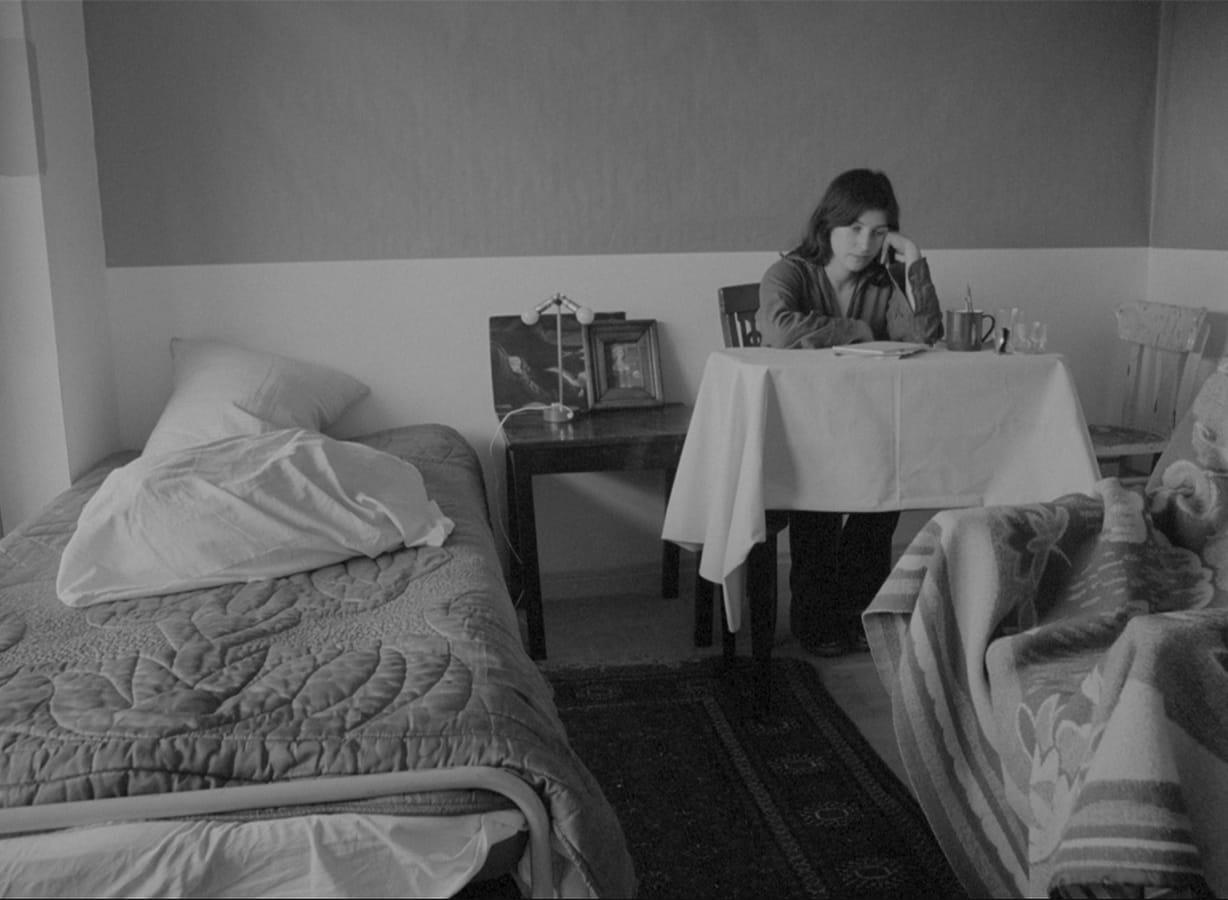
And the remaining bonuses are tucked away with their respective features: Je Tu Il Elle includes a 2019 episode of the Criterion Channel’s web series Under the Influence, where filmmaker Ira Sachs discusses seeing the film before he could fully appreciate it – only truly discovering its meaning on a second viewing a decade later, when he could see himself in Akerman’s lost protagonist – while Les Rendez-vous d’Anna comes with a 2007 conversation between Akerman and her star, discussing the movie over tea in Clément’s kitchen; it’s one long fixed shot centered on Clément, though Akerman’s hand strays into the frame here and there when she speaks.
It’s reassuring to see her appear in the image, given how present she is in the rest of her work – and how much of that work is about acknowledging the women in it. No one did it better, really.
Chantal Akerman: Masterpieces 1968-1978 is available on Blu-ray from the Criterion Collection. You won’t find a better presentation of these films.
Coming up soon: Sofia Coppola goes to Graceland, Tenacious D go on a quest and Kamala Khan goes to the big show. And congratulations to Erin Berry, winner of the Dumb Money Blu-ray from Elevation Pictures! It's fun to win stuff, right?
